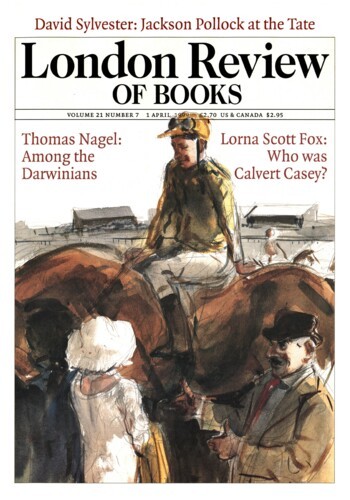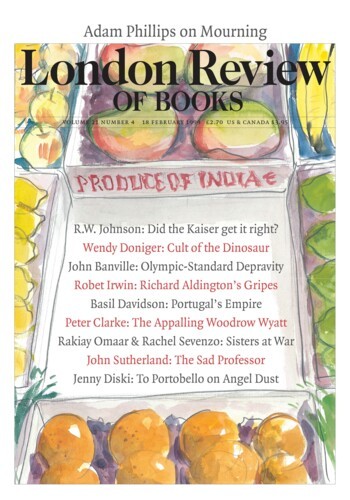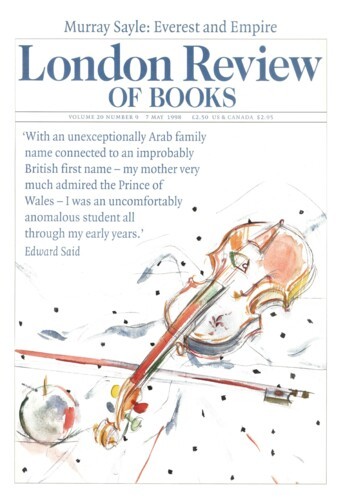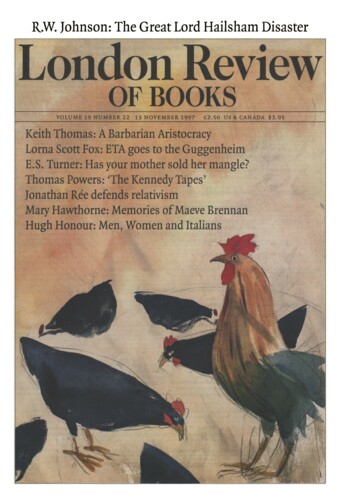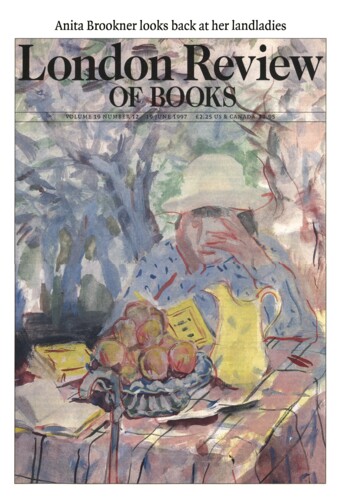Diary: Newton’s Rings
Jeremy Bernstein, 1 April 1999
Stanley Kubrick’s second film, an RKO short that he made when he was 23, was called Flying Padre. It was about the Rev. Fred Stadtmueller, who flew around New Mexico tending his parishioners. Kubrick had taken flying lessons himself. I am not sure when it happened, but by the mid-Sixties he had decided never to fly in anything again. He told me that he considered it too dangerous. This meant he didn’t do much travelling and all the long-distance journeys he made – such as relocating his family to England in 1965 – he made by boat. He explained to me that the best way to transport your possessions in this kind of move was in Boy Scout foot lockers – small trunks. For his move to England he had purchased 140. Not flying posed a problem during the Cuban missile crisis. Kubrick had decided that there was a considerable chance of a nuclear exchange between the Soviet Union and the United States and that his prospects would be better if he went to the Southern hemisphere. Australia seemed like a good choice so he booked a passage on a boat with his family. However, before leaving he learned that he and his wife would have to share a bathroom with a neighbouring cabin. He cancelled his booking and decided to take his chances with the atomic bomb. Not long afterwards he began working on Dr Strangelove.’
